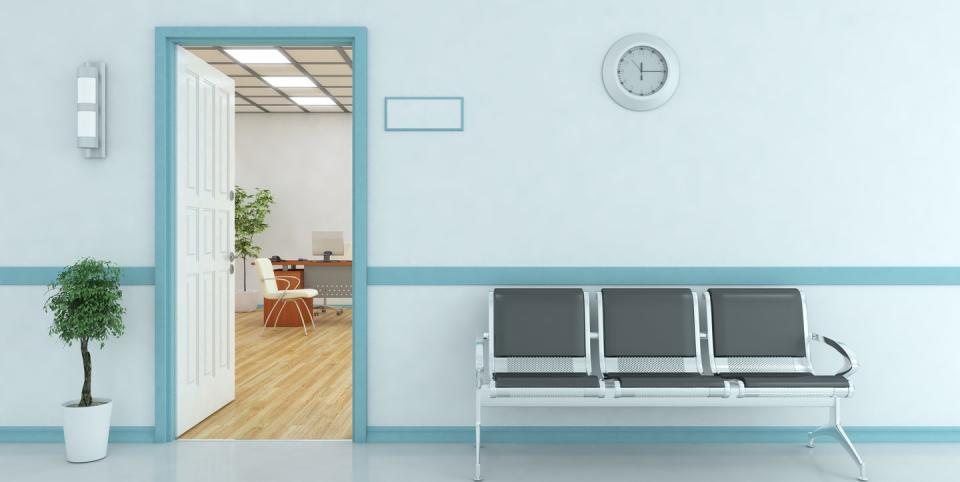Common early menopause symptoms a gynae sees most

We all know by now that there's no standard menopause experience, because everything from the symptoms a woman experiences to the age perimenopause begins, is as individual as our menstrual cycles.
That said, there are a few common signifiers doctors use to work out whether a woman is in the early stages of menopause or may be in premature menopause, if she is under 45.
The medical condition early menopause, or premature menopause, is characterised by the NHS as 'when a woman's periods stop before the age of 45. It can happen naturally, or as a side effect of some treatments'.
Irregular periods, or periods stopping altogether, is a key signifier that a woman is in early or premature menopause – along with symptoms such as hot flushes and night sweats. If you are under 45 and are concerned about early menopause, then contact your GP for an assessment.
WHAT IS MENOPAUSE?
'The menopause is when menstrual periods stop, Professor Stergios Doumouchtsis, consultant obstetrician and gynaecologist at Doumouchtsis.com, tells Red. 'Women are considered postmenopausal when they have not had a period for one year. Periods usually become less frequent first over a few months or years, before they stop.'
He adds: 'Most women will experience menopausal symptoms and, in some women, they can have a significant impact on quality of life.'
COMMON EARLY MENOPAUSE SYMPTOMS
So, what are the most common early menopause symptoms? Well the first thing a doctor looks at is age.
'The menopause is a normal part of the ageing process that usually occurs between 45 and 55 years of age,' Professor Doumouchtsis explains. 'In the UK, the average age of menopause is 51 years. Menopause in some women can occur earlier. Menopause before the age of 40 years is known as premature ovarian insufficiency or premature menopause.'
Then, menopause side effects are taken into account. 'Symptoms of menopause may start months or years before menopause and can last months or years after the menopause,' Professor Doumouchtsis says.
'They include hot flushes, night sweats, mood swings, vaginal dryness, sleep disturbances, reduced libido, and reduced memory.
'The genitourinary syndrome of menopause (GSM) is a syndrome of various menopausal symptoms and signs including genital symptoms (dryness, burning, and irritation), sexual difficulties (lack of lubrication, discomfort or pain), and urinary symptoms (urgency, pain when passing urine and recurrent urinary tract infections).'
IS THERE A TEST FOR EARLY MENOPAUSE SYMPTOMS?
Yes. 'Women with menopausal symptoms can see their doctor, especially if they are younger than 45,' explains Professor Doumouchtsis. 'A blood hormone profile will check the reproductive hormone levels in these cases and assess for ovarian insufficiency.'
At a secondary level, 'a urogynaecologist can assess a woman with GSM symptoms and advise on appropriate investigations and treatments based on her predominant symptoms'.
WHAT ARE THE TREATMENT OPTIONS FOR EARLY MENOPAUSE?
'Treatment options include hormone replacement therapy (HRT), vaginal oestrogens for vaginal dryness and discomfort, and lifestyle modifications (healthy diet, exercise, symptomatic relief),' Professor Doumouchtsis says.
Your GP can provide menopause support and advice, so contact them with any concerns.
Subscribe to Red now to get the magazine delivered to your door.
Like this article? Sign up to our newsletter to get more articles like this delivered straight to your inbox.
You Might Also Like

 Yahoo Finance
Yahoo Finance 
